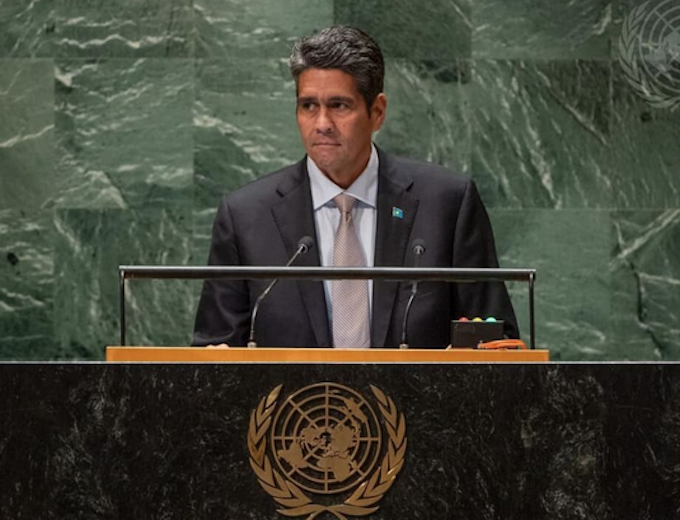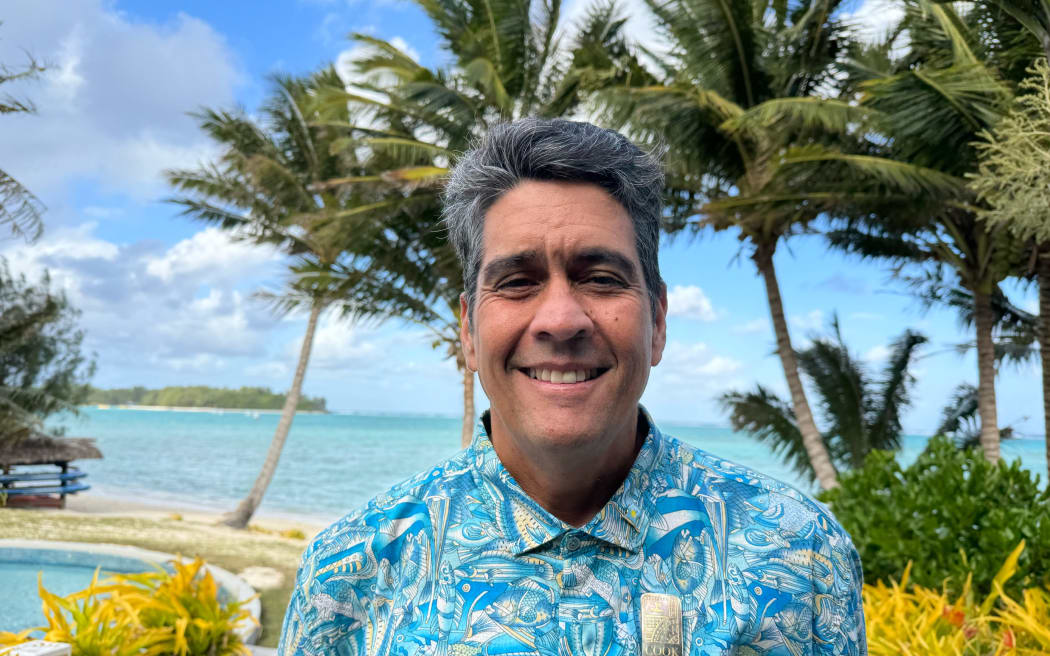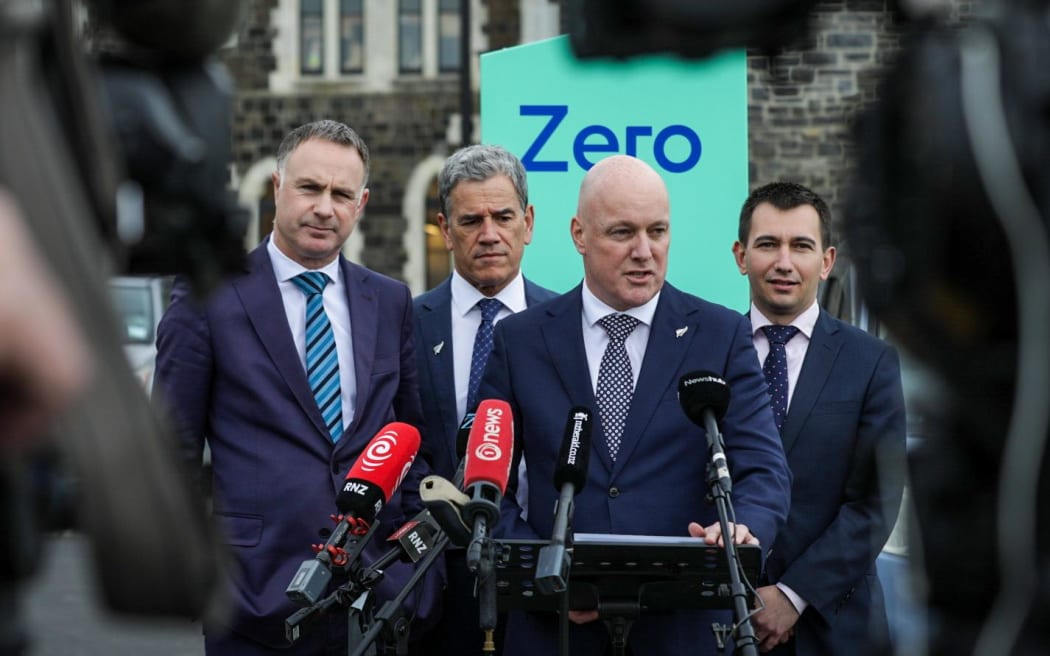
By Lydia Lewis, RNZ Pacific journalist
The President of Palau has slammed New Zealand’s new government for its oil and gas exploration plans as the COP28 global climate summit gets underway.
The National-led government intends to reopen Aotearoa waters to oil and gas exploration, despite a commitment to limit global warming to 1.5 degrees.
Pacific leaders are poised to hold what they describe as “perpetrators of climate chaos” to account.
The National-led government intends to reopen Aotearoa waters to oil and gas exploration, despite a commitment to limit global warming to 1.5 degrees.
Pacific leaders are poised to hold what they describe as “perpetrators of climate chaos” to account.
While the new Climate Change Minister Simon Watts was not expecting criticism over fossil fuels at the summit, Palau President Surangel Whipps Jr has served it up.
“What a backward position that an island that is part of the Pacific Island Forum that should understand the challenges that we’re facing,” Whipps Jr said.
NZ ‘should take lead’
“New Zealand as a Pacific Island and a member of the forum should take a leadership role and should be active in doing all they can to transition away from fossil fuels. That’s what they should be working on,” he said.
“They shouldn’t be going out and exploring more gas and oil.”

The Pacific Islands Climate Action Network (PICAN) has also taken aim at the New Zealand government’s plans.
Regional coordinator Lavetanalagi Seru said it was not the time to be exploring and expanding the extraction of fossil fuel including gas.
“At a time when the Pacific and many climate frontline communities are grappling with the single greatest security threat of climate change, intensifying fossil fuel dependency, not only undermines collective efforts, but also sends a very strong sense of wrong market signals, neglecting broader environmental and social ramifications,” Seru said.
“It will undermine all our efforts to ensure climate resilience for communities, and this isn’t the time to be exploring and expanding the extraction of fossil fuels, including gas.”
Watts said the overturning of the ban did not weaken New Zealand’s climate position.

‘We rely on NZ’
Tuvalu’s former prime minister and now opposition leader Enele Sopoaga has a reminder for the new government: “We rely on New Zealand to stand up strong with the island countries”.
Niue’s Minister for Natural Resources Mona Ainu’u will be drumming home the tangable impacts felt in the Pacific while in Dubai.
“We come to COP, without any commitment from a lot of these countries and these perpetrators of climate chaos, as I call them,” she said.
“It’s very difficult to hold them accountable. We continue to travel 1000s and 1000s of miles, because our people are suffering. People continue to find innovative ways to survive on this earth. From no fault of ours. But we need to hold these countries accountable.”
Ainu’u said there had been little to no movement on last year’s commitment by the world’s biggest emitters to contribute to costs caused by climate change.
This year, one of the main Pacific priorities is building up that loss and damage fund.
A delegate from Palau, Xavier Matsutaro said there was a lot to put into action.
“Let’s just put it this way, there’s a lot to prove on COP28, and every subsequent COP becomes more and more urgent because it narrows down that window that we need to do to wrap up in emission reduction,” he said.
“And that’s one of the things are the heart of this meeting. And one of the things that will spell out the level of success.”
‘Affect real lives’
A Pacific youth delegate, Metoyer Lohia who is also there, wants to remind the world of the reality of the situation:
“There’s a lot of that. I guess media and the Western world don’t really understand about the real problems and the real challenges that are faced by our communities and people on the ground,” Lohia explained.
“Because at the end of the day, although these are very high level discussions, they ultimately affect real people with real lives and as a Pacific.”

Whipps Jr said US President Joe Biden was a noticeable absence from this year’s meeting.
“The United States needs to be active, it needs to show leadership. And of course, not having Biden here definitely weakens at least or gives us concern about our hope for the future,” he said.
“But there’s Australia, there’s China, there’s India, there’s the EU. I mean, everybody’s got to step it up.”
“As a Pacific island country. I believe that New Zealand should understand better than any other country in the world the challenges that Pacific islands have,” Whipps Jr said.
“We have Marshall Islands, Tuvalu, Kiribati, all their islands are less than two metres above water.
“I mean, if you’re a Pacific island nation, and you don’t understand that, I don’t know, I don’t know how, what else we can say.
“It’s just tragic to be hearing these kinds of actions by the New Zealand government.”
This article is republished under a community partnership agreement with RNZ.












































